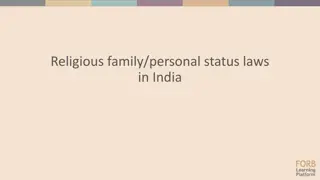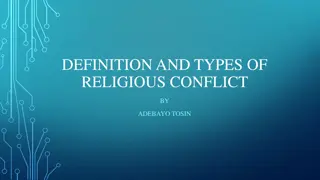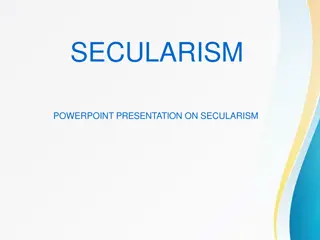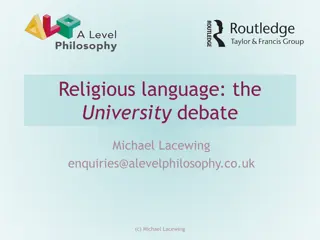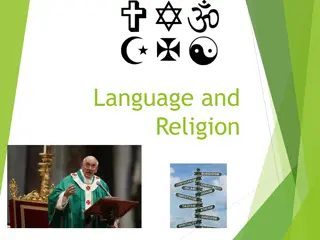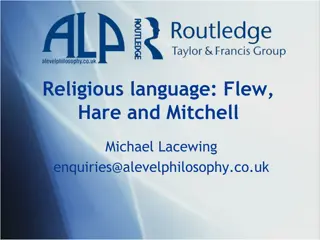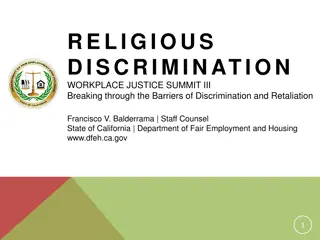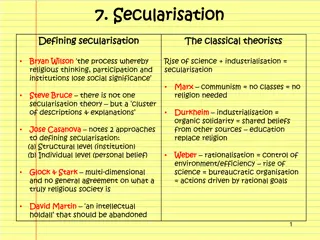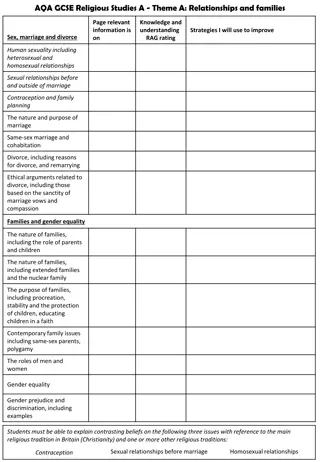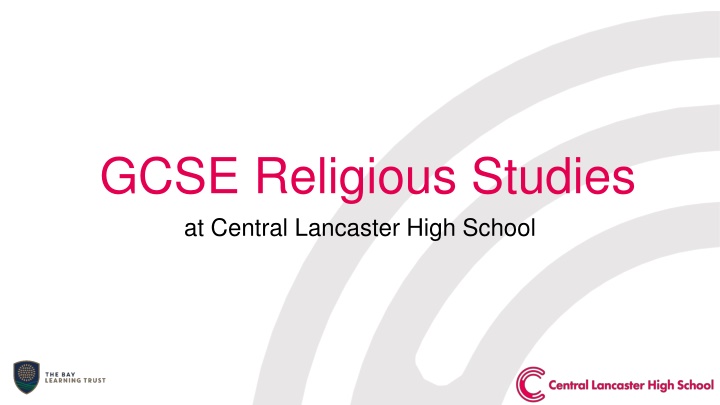
GCSE Religious Studies at Central Lancaster High School
Explore the unique opportunity of studying GCSE Religious Studies at Central Lancaster High School. Gain insights into various beliefs and practices, develop critical thinking skills, and enhance communication abilities. This course is ideal for individuals interested in diverse perspectives and ethical inquiries, regardless of faith background. Discover the enriching experience of delving into the study of religions, beliefs, and practices with this comprehensive program.
Download Presentation

Please find below an Image/Link to download the presentation.
The content on the website is provided AS IS for your information and personal use only. It may not be sold, licensed, or shared on other websites without obtaining consent from the author. If you encounter any issues during the download, it is possible that the publisher has removed the file from their server.
You are allowed to download the files provided on this website for personal or commercial use, subject to the condition that they are used lawfully. All files are the property of their respective owners.
The content on the website is provided AS IS for your information and personal use only. It may not be sold, licensed, or shared on other websites without obtaining consent from the author.
E N D
Presentation Transcript
GCSE Religious Studies at Central Lancaster High School
Why study GCSE Religious Studies? Unique opportunity to see the world from a different perspective. Students will develop their knowledge, skills and understanding of religion by exploring the significance and impact of beliefs, teachings, sources, practices and ways of life. Students will be able to express their own beliefs whilst taking into account the beliefs of others. Religious Studies allows students to express their personal responses on fundamental questions and encourages them to explore these topics and build informed, well- articulated arguments for and against these issues.
Who might this course appeal to? GCSE Religious Studies is well suited to anyone who has questions to ask and opinions to give. This course will appeal to people who are interested in others and in human beliefs and behaviours. You do not need a 'faith' to enjoy this course.
What skills are achieved? Communication skills Working with others Problem solving Personal development It develops skills in making decisions about moral problems, and helps you to become sure about your own beliefs and be able to explain them clearly to others. It equips students with the essential tools and qualities to enable them to function both effectively and efficiently as responsible, broad-minded citizens in an increasingly pluralistic society and global community. Students studying Religious Studies will develop their ability to construct well- argued, well-informed, balanced and structured written arguments.
Course content: AQA Religious Studies Specification A GCSE Religious Studies has 2 exam papers: Component 1:The study of religions: beliefs, teachings and practices: 1 hour 45 minutes, worth 96 marks plus 6 marks for spelling, punctuation and grammar. 50% of the GCSE grade. Each religion has a common structure of two five-part questions of 1, 2, 4, 5 and 12 marks. Component 2: Thematic Studies. 1 hr 45 mins, worth 96 marks, plus 3 for spelling, punctuation and grammar. Each theme has a common structure of one five-part question of 1, 2, 4, 5 and 12 marks.
Component 1: Study of religions, beliefs, teachings and practices Christianity and Islam Key beliefs Ideas about the nature of God and existence Belief about the nature of human life Worship and festivals Religion and the wider community
Component 2: Thematic Studies Relationships and families Religion and life issues Religion peace and conflict Religion, crime and punishment and religion Human rights and social justice
Where can it lead? The skills developed will support you in further studies and employment. Religious Studies will teach the skills and understanding needed to work with people of all faiths and cultures. These skills are vitally important in all careers especially professions such as law, enforcement, teaching and the armed forces, in fact any profession that brings you into contact with other people.
Pathways for post-16 study Pupils can go onto to any of the local 6th form providers to study A Level Religious Studies, Philosophy and ethics, Sociology and Law. Post-18 students can progress to a wide range of Religious Studies degrees at universities both nationally or internationally, or, they may choose to pursue an apprenticeship or go into employment.
For more information about the course, please speak to your child's teacher at progress evening on Thursday 14th March 2024.

